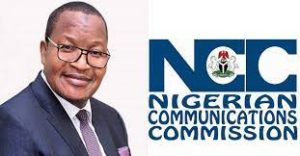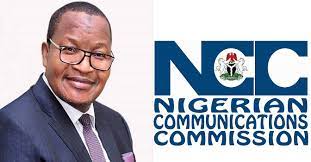The Nigerian Communications Commission (NCC), is set to introduce a licencing framework for the establishment of Mobile Virtual Network Operators (MVNOs) in Nigeria, which will lead to the massive penetration of broadband services to the unserved and underserved areas of the country.
The commission has also opened communications with a European firm that is offering grants and loans to support broadband infrastructure deployment as part of digital economy development in Nigeria.
Meanwhile, the commission identified the inability of infracos to raise takeoff capital to commence infrastructure deployment, the failure of state governments to honour the agreement with stakeholders to peg the right of way (RoW) at N145/meter and the action of some State Governments, cancelling existing RoW and awarding exclusive RoW to one company in the states, are impeding broadband penetration in the country.
Executive Vice Chairman of NCC, Prof Umar Danbatta, who disclosed this at National Strategic Mobilisation for the actualisation of National Broadband Target of 70 percent organized by the Association of Telecommunications Companies of Nigeria (ATCON), in Abuja, observed that the outright refusal of some states to even discuss RoW with licensed regional infracos, failure of mobile network operators to sign off-take agreements with the licensed infracos – that would have facilitated their access to loan facilities, compounded the issues.

He stated that there are inequitable licence conditions against the infracos who are required to use higher specifications and standards for deployment of infrastructure adding that the Commission is already addressing the issue.
Danbatta noted that challenges impeding the actualisation of the 70 per cent broadband penetration target in the NNBP are not insurmountable as the plethora of initiatives by the commission, if given the required impetus, can push broadband penetration to well over 80 per cent before 2025.
He said: ” Other challenges Impeding the attainment of the broadband target include the insecurity in many parts of the country, lack of adequate publicity, sensitisation of critical stakeholders, failure of government to plough back part of proceeds of spectrum fees into infrastructure development, since the inception of telecom liberalisation in 2001.”
The NCC boss said that the Commission has issued 5G spectrum licenses to two successful bidders (MTN Nigeria Limited and Mafab Communications Ltd) and this will contribute to a massive leap in Broadband penetration in the country.
Earlier, ATCON President, Ikechukwu Nnamani said that the event was put together to have a conversation between the government and critical stakeholders in the various segments of the Nigerian Telecom and ICT sector with a view to proffering lasting solutions to issues that are likely to constitute an obstacle to the actualization of National Broadband Target before the expiration of the National Broadband Plan 2020-2025.
In his remark, Minister of Communications and Digital Economy, Isa Ali Pantami noted that the Federal Government’s Broadband Plan to achieve 70 per cent broadband penetration by 2025 is hinged on the four pillars of infrastructure, policy, demand drivers, and funding.
Pantami, who was represented by the Deputy Chairman of the National Broadband Plan Initiative, Mallam Abdul Gambo Usman stated that the Federal Government plans to force down the cost of data to N390 per gigabyte of data while ensuring 70 percent of Nigerians have access to data.


